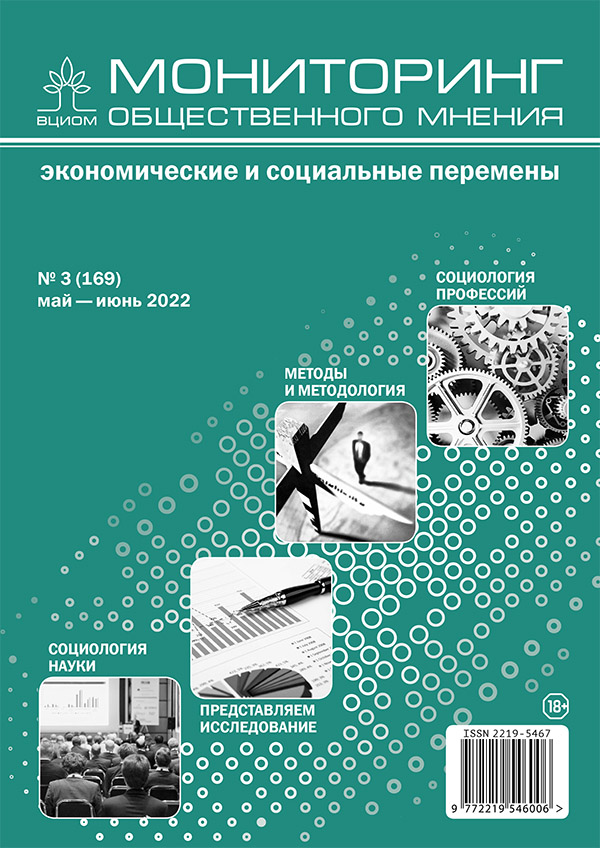Двухкомпонентная модель факторов поведения: нужны ли имплицитные факторы теории запланированного поведения?
DOI:
https://doi.org/10.14515/monitoring.2022.3.2125Ключевые слова:
факторы поведения, двухкомпонентная модель факторов поведения, эксплицитные факторы, имплицитные факторы, установка, структурная теория установки, GATO, TRA/TPB, IAT, MODE, RIMАннотация
Теория запланированного поведения (ТЗП) является наиболее популярной моделью структурирования факторов поведения и лежит в основе большинства алгоритмов его прогнозирования. Она дополняет теорию социальной установки, указывая, что слепой реализации последней предшествует анализ ее применимости к конкретной ситуации. Опираясь на результаты исследований последних лет, автор данной работы предполагает, что ТЗП может быть усовершенствована за счет интеграции в модель имплицитной (неосознаваемой) группы факторов. В статье представлено теоретическое обоснование и операционализация комплексной (эксплицитно – имплицитной) модели ТЗП, а также первые результаты ее апробации на основе данных специально организованного выборочного опроса населения по выборке в 2908 респондентов. Проведенное исследование позволяет утверждать, что включение имплицитных факторов может приводить к изменению в их относительных вкладах и — потенциально — к повышению прогностической силы модели. Его результаты тем более показательны, что имплицитные факторы продемонстрировали свою значимость на примере поведения россиян при покупке жилья — области потребительского поведения, где, как считается, действия являются преимущественно рациональными и находящимися под почти монопольным управлением эксплицитных факторов.
Загрузки
Опубликован
Как цитировать
Выпуск
Раздел
Лицензия
Copyright (c) 2022 Мониторинг общественного мнения: экономические и социальные перемены

Это произведение доступно по лицензии Creative Commons «Attribution-NonCommercial-ShareAlike» («Атрибуция — Некоммерческое использование — На тех же условиях») 4.0 Всемирная.






